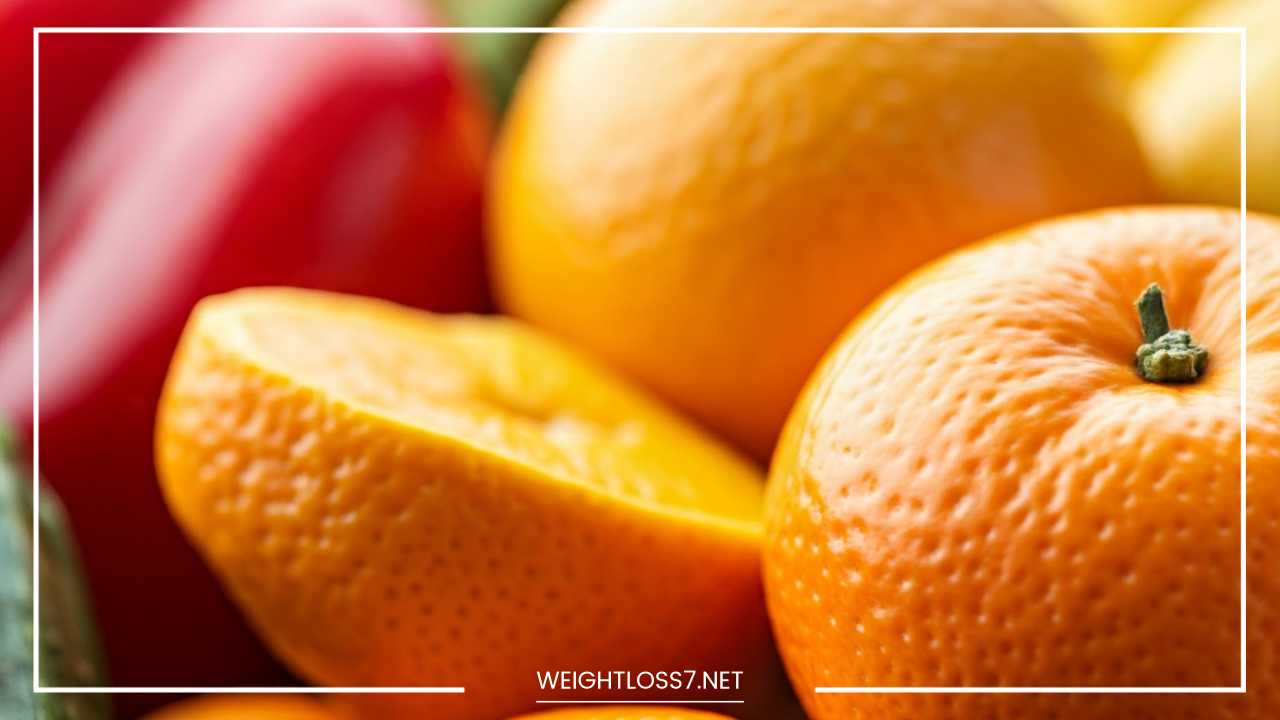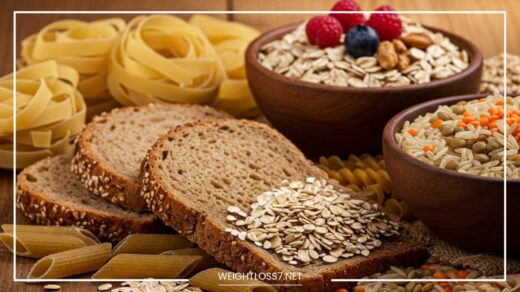Fight Inflammation With Food

Inflammation
Fight Inflammation with Food: A Comprehensive Guide
Inflammation is a critical part of your body’s immune response, acting as a protective mechanism that helps defend against infection, injury, and harmful substances.
However, when inflammation becomes chronic, it can have a damaging effect on your health, potentially contributing to a wide range of conditions, including heart disease, arthritis, diabetes, autoimmune diseases, and even cancer.
While medications can help manage inflammation, what you eat can be just as powerful in reducing its harmful effects.
In this comprehensive guide, we’ll explore the science of inflammation, how diet impacts this process, and provide practical advice on how to use food to fight inflammation and improve your overall health.
From the best anti-inflammatory foods to additional lifestyle strategies, this guide will equip you with the knowledge to make informed choices that support your body’s natural healing processes.
Understanding Inflammation: The Basics
Inflammation is a natural and essential part of your body’s immune response. It is your body’s way of protecting itself from harm.
When your body detects an infection, injury, or harmful stimulus, it initiates an inflammatory response.
This response involves various immune system cells, proteins, and chemical signals that work together to neutralize harmful invaders, repair damaged tissue, and restore health.
There are two types of inflammation: acute and chronic.
Acute Inflammation
Acute inflammation is a short-term, localized response that occurs when the body is injured or infected.
You may notice signs of acute inflammation, such as redness, heat, swelling, and pain. For example, if you cut your finger, the site of the injury will become inflamed as your body works to repair the tissue.
This type of inflammation is beneficial because it aids in healing and recovery.
Chronic Inflammation
Chronic inflammation, on the other hand, is long-lasting and can persist for months or even years. This occurs when the immune system remains activated long after the initial injury or infection has healed.
Chronic inflammation can lead to ongoing tissue damage, resulting in conditions such as arthritis, cardiovascular disease, diabetes, and even some forms of cancer.
Poor diet, stress, lack of sleep, and environmental toxins can all contribute to chronic inflammation.
Understanding this difference is important when considering how to manage inflammation. While acute inflammation is part of the body’s healing process, chronic inflammation requires intervention to prevent long-term health problems.
The Role of Diet in Inflammation
Your diet plays a significant role in either promoting or reducing inflammation in the body.
Research has shown that certain foods have anti-inflammatory properties that can help lower levels of chronic inflammation, while others can exacerbate the process.
Inflammation can be influenced by several dietary factors, including:
- Pro-inflammatory Foods
Many processed and refined foods can contribute to inflammation. These include foods high in trans fats, refined carbohydrates, added sugars, and excessive amounts of omega-6 fatty acids, which are often found in vegetable oils and processed snacks. These foods can activate the immune system in ways that increase the production of pro-inflammatory molecules. - Anti-inflammatory Foods
On the other hand, there are foods that help combat inflammation. These include foods rich in antioxidants, healthy fats, vitamins, and minerals that help reduce oxidative stress, which is one of the main contributors to chronic inflammation. By focusing on anti-inflammatory foods, you can support your body’s ability to manage inflammation and promote healing.
In the following sections, we’ll dive deeper into the most powerful anti-inflammatory foods and explain how they work to help reduce inflammation in the body.
Top Anti-Inflammatory Foods to Include in Your Diet
A wide variety of foods can help reduce chronic inflammation. Many of these foods are not only healthy but also delicious and easy to incorporate into your daily meals.
Below is a comprehensive list of the most potent anti-inflammatory foods, along with a detailed explanation of their benefits.
1. Fatty Fish (Rich in Omega-3 Fatty Acids)
Fatty fish are among the most effective foods for fighting inflammation due to their high content of omega-3 fatty acids.
Omega-3s, particularly EPA (eicosapentaenoic acid) and DHA (docosahexaenoic acid), have been shown to reduce the production of pro-inflammatory molecules and enhance the body’s ability to heal and repair.
Examples:
- Salmon
- Mackerel
- Herring
- Sardines
- Anchovies
- Tuna (particularly albacore)
How They Help:
Omega-3 fatty acids help reduce inflammation by altering the way your body produces inflammatory chemicals called cytokines and eicosanoids.
They can also reduce the production of enzymes that promote inflammation. Studies have shown that consuming fatty fish regularly can lower levels of C-reactive protein (CRP), a marker of inflammation in the blood.
2. Berries (Packed with Antioxidants)
Berries are rich in antioxidants, which are compounds that help neutralize free radicals—unstable molecules that contribute to oxidative stress and inflammation.
The antioxidants in berries, including anthocyanins, flavonoids, and vitamin C, have been linked to lower inflammation levels.
Examples:
- Blueberries
- Strawberries
- Blackberries
- Raspberries
- Cherries
How They Help:
Berries’ antioxidants work by preventing oxidative damage to cells and tissues, which reduces the inflammatory response.
Berries have also been shown to lower markers of inflammation, such as CRP, and may help protect against chronic conditions like heart disease, diabetes, and cancer.
3. Leafy Green Vegetables (Packed with Vitamins and Minerals)
Leafy greens are some of the most nutrient-dense foods available. These vegetables are rich in vitamins, minerals, and antioxidants that play a key role in reducing inflammation and supporting overall health.
Examples:
- Spinach
- Kale
- Swiss chard
- Collard greens
- Arugula
- Mustard greens
How They Help:
Leafy greens are high in vitamin K, which has anti-inflammatory effects by regulating immune responses.
They are also packed with fiber, which supports gut health. A healthy gut is crucial for managing inflammation, as an imbalance in gut bacteria can lead to chronic inflammation throughout the body.
4. Cruciferous Vegetables (Sulforaphane-Rich)
Cruciferous vegetables contain compounds like sulforaphane, which have strong anti-inflammatory and antioxidant properties.
Sulforaphane has been shown to inhibit inflammation by blocking specific enzymes involved in inflammatory pathways.
These vegetables are also excellent sources of fiber, which further supports a healthy inflammatory response.
Examples:
- Broccoli
- Cauliflower
- Brussels sprouts
- Cabbage
- Kale
- Bok choy
How They Help:
Cruciferous vegetables contain a wealth of nutrients, including vitamins A, C, E, and K, along with folate and potassium.
These nutrients not only reduce inflammation but also support the immune system and protect cells from oxidative damage.
5. Nuts and Seeds (Rich in Healthy Fats and Antioxidants)
Nuts and seeds are packed with healthy fats, particularly omega-3 fatty acids, which help reduce inflammation.
In addition to their anti-inflammatory effects, they are also a good source of protein, fiber, and antioxidants that support overall health.
Examples:
- Walnuts
- Almonds
- Chia seeds
- Flaxseeds
- Hemp seeds
- Pumpkin seeds
How They Help:
Nuts and seeds provide plant-based omega-3s, vitamin E (an antioxidant), and minerals like magnesium, which has been shown to reduce markers of inflammation.
They also contain polyphenols, compounds that help reduce oxidative stress and inflammation.
6. Extra Virgin Olive Oil (Rich in Monounsaturated Fats)
Extra virgin olive oil is a cornerstone of the Mediterranean diet, known for its anti-inflammatory properties.
It contains high levels of monounsaturated fats and polyphenols, such as oleocanthal, which have been shown to have similar effects to ibuprofen in terms of reducing inflammation.
How It Helps:
Extra virgin olive oil is one of the healthiest fats you can consume. The polyphenols in olive oil help suppress inflammatory genes and reduce the production of inflammatory molecules.
Regular consumption of olive oil has been linked to lower levels of CRP and improved heart health.
7. Turmeric (Rich in Curcumin)
Turmeric is a vibrant yellow spice commonly used in curry dishes. It contains curcumin, a potent anti-inflammatory compound that has been widely studied for its ability to reduce inflammation in the body.
How It Helps:
Curcumin works by inhibiting the production of pro-inflammatory molecules such as cytokines and enzymes. It also helps block inflammation-inducing pathways in the body.
To enhance curcumin absorption, pair turmeric with black pepper, which contains piperine, a compound that increases curcumin’s bioavailability.
8. Ginger (Natural Pain Reliever and Anti-Inflammatory)
Ginger has been used for centuries for its medicinal properties, including its ability to reduce pain and inflammation.
The active compound in ginger, gingerol, has been shown to reduce markers of inflammation and alleviate pain, particularly in people with conditions like osteoarthritis.
How It Helps:
Ginger has anti-inflammatory effects similar to those of nonsteroidal anti-inflammatory drugs (NSAIDs) like ibuprofen, but without the side effects.
It works by inhibiting the production of inflammatory molecules and enzymes in the body.
9. Garlic (Contains Allicin)
Garlic contains allicin, a sulfur-containing compound that has been shown to have anti-inflammatory and immune-boosting properties. Garlic also contains antioxidants that help protect cells from oxidative damage.
How It Helps:
Allicin helps regulate immune function and suppresses the production of inflammatory molecules. Garlic’s ability to lower blood pressure and reduce oxidative stress also makes it beneficial for reducing inflammation, particularly in the cardiovascular system.
10. Dark Chocolate (Rich in Flavonoids)
Dark chocolate, particularly varieties with 70% or higher cocoa content, is rich in flavonoids, which have been shown to have antioxidant and anti-inflammatory effects.
How It Helps:
Flavonoids, particularly epicatechin and catechins, help reduce inflammation by improving blood flow, reducing oxidative stress, and lowering blood pressure. Dark chocolate can be a heart-healthy indulgence when consumed in moderation.
Additional Tips for an Anti-Inflammatory Lifestyle
In addition to eating an anti-inflammatory diet, adopting certain lifestyle habits can help reduce chronic inflammation and improve overall health. These include:
- Limit Processed Foods: Processed and refined foods high in sugars, unhealthy fats, and artificial additives can trigger or worsen inflammation. Focus on whole, nutrient-dense foods instead.
- Exercise Regularly: Physical activity helps regulate the immune system and reduce inflammation. Aim for at least 30 minutes of moderate exercise, such as walking, cycling, or swimming, most days of the week.
- Manage Stress: Chronic stress triggers the release of cortisol and other hormones that can lead to inflammation. Practice stress-management techniques such as meditation, yoga, deep breathing, or spending time in nature.
- Get Quality Sleep: Poor sleep is linked to increased inflammation. Aim for 7–9 hours of quality sleep per night to support your body’s ability to heal and regulate inflammation.
- Stay Hydrated: Drinking enough water helps flush out toxins and supports the body’s natural detoxification processes, which can reduce inflammation.
Final Remarks
Chronic inflammation is a silent contributor to many health problems, but by adopting an anti-inflammatory diet and lifestyle, you can reduce its harmful effects and promote long-term well-being. Incorporating foods like fatty fish, berries, leafy greens, and turmeric into your diet can help combat inflammation, while limiting processed foods, managing stress, and staying active can further enhance your body’s ability to heal.
Remember, consistency is key when it comes to managing inflammation through diet and lifestyle changes. Make small, sustainable adjustments to your daily routine and focus on long-term health rather than quick fixes.
And, as always, consult with a healthcare professional or registered dietitian before making significant changes to your diet, especially if you have existing health conditions.
By making these changes, you can effectively fight chronic inflammation and improve your quality of life.
Disclaimer: This article is for informational purposes only and should not be considered as medical advice. Always consult with a healthcare professional before making any significant changes to your diet or lifestyle.

















